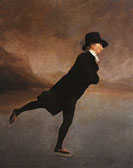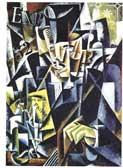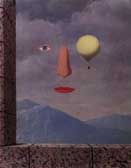
Humanities
HUMN 54H
 |
 |
 |
Honors Institute Seminar in the Humanities
Formerly Humanities 34
This one-unit Honors course is a seminar in directed readings, discussions and projects
with the theme determined by the instructor. To allow for maximum flexibility, the
course objectives are kept very general, but to give you an idea of the scope of the
courses, below are the descriptions of three different versions of the course. Please
e-mail the instructor or department head, Dr. Falk Cammin, for specific information
regarding the current course offering.
Course Objectives
- analyze the topic in a skillful and thorough manner
- discuss the topic critically with instructor and other students
- explain the importance of the topic to the discipline
- use new vocabulary relevant to the topic
Examples of Previous Seminars
HUMN 54H (Fall 2013)
Out on the Edge – The Crisis of Modernity
For European living in the year 1900 and looking back at the preceding two decades,
the progress brought about by technological innovation and commercial ingenuity, might
have painted the world a promising place. However, less than fifty years later, Europe
lay in ruins, reeling from a half-century of war, economic depression and genocide.
What were the seeds that brought about this profound crisis? Choosing Germany, the
modernist nation par exellence, this course explores the relationship between artistic experimentation, abstraction,
primitivism and myth making in literature and its related manifestation in totalitarian
politics.
HUM 54H (Winter 2013)
The Age of Reason: Art and Thought in the 18th Century
In the 18th century, 'sapere aude' (dare to know) became the battle cry of the monumental
intellectual movement called the Enlightenment, which produced a new way of looking
at the world and humanity's place in it. This course explores how the interaction
between art and thought during the 'Age of Reason' advanced the progressive emphasis
on learning, the exploration of nature, and the daring critique of social structures.
In particular, we will focus on the changes of aesthetic production and consumption,
and their role in fostering social activisms and planting the seeds of revolution.
HUM 54H (Spring 2013)
"Art and Transgression: The Holocaust in the Aesthetic Imagination"
When Theodor Adorno, the German-Jewish cultural critic, claimed that "Writing Poetry
after Auschwitz is barbaric", he challenged us to reflect upon the dangers that come
with artistic representation. In this course, we will explore how art (literature,
films, memorials, sculpture and painting) has shaped our understanding of the Holocaust
and explore how art mediates our encounters with history. Specifically we will ask
if art is necessarily complicit in utilizing the Holocaust for political interests
or if art can provide a space that affords us to behold a realm beyond reason.

